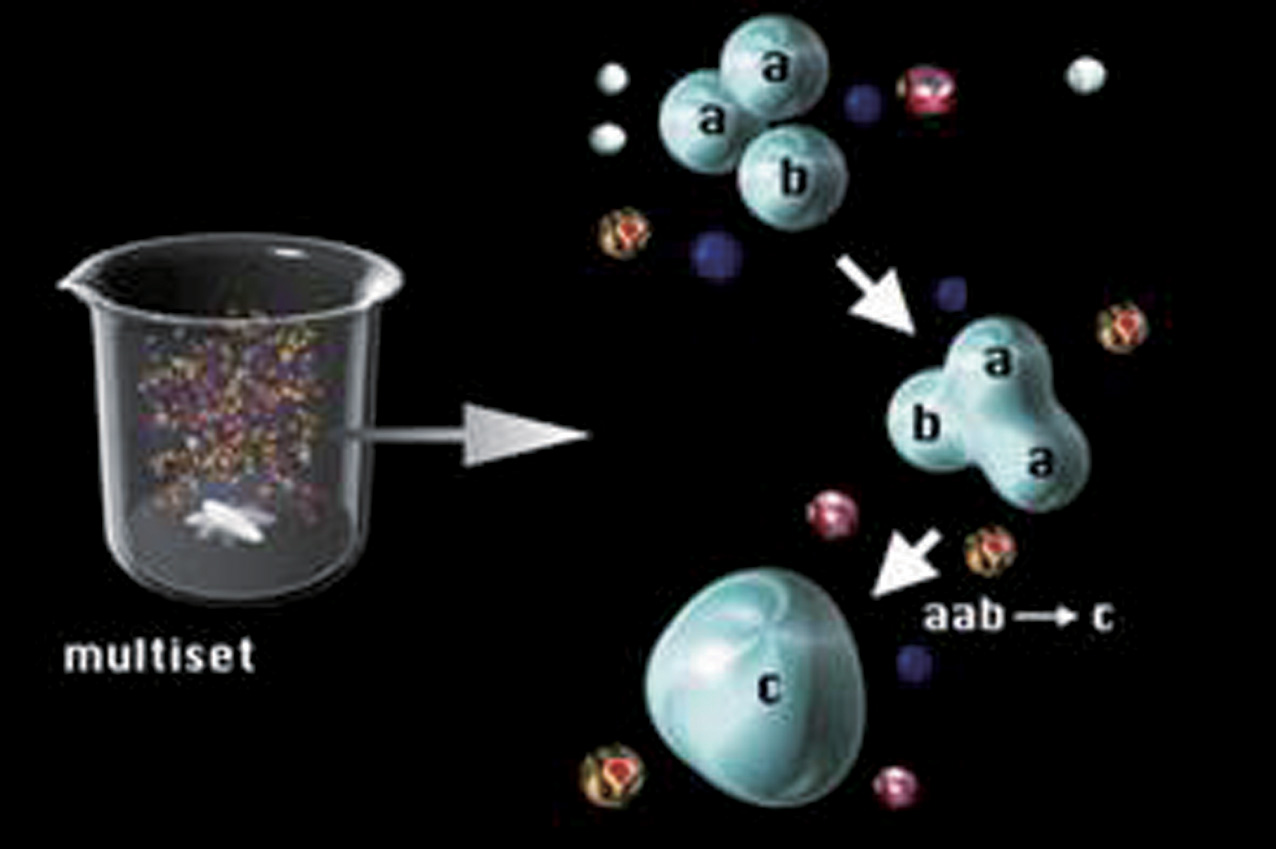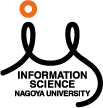Comprehensive List of Researchers "Information Knowledge"
Department of Complex Systems Science
- Name
- SUZUKI, Yasuhiro
- Group
- Complex Systems Computation Group
- Title
- Associate Professor
- Degree
- Dr. of Informatics
- Research Field
- Natural Computing / Science of Harness / Complexity / Systems Biology / Computational Aesthetics /

Current Research
Science of Harness
■Mission■Science of Complex Interactions: One day, when walking down the street, you see a person wearing a cool black shirt; after a while, you go to a shop and buy a black shirt. A few days later, a person sees you in your black shirt, and that person also buys a black shirt. Day by day, such small movements of emotion [cjo1](interaction) seep into society, and someday they lead to the outbreak of a new mode. A mode resembles a creature; it develops, evolves, and disappears. We see this kind of phenomenon in various complex systems not only in society but also in living systems (the origin of life), economical systems, etc. Through[cjo2] interactions, our mission is to understand the principle of emerging hierarchical structure from nothing.
■Research■
Abstract model of chemical systems: Chemical systems are basic for living systems; however, the dynamics of a real chemical system are too complex to be understood precisely[cjo3]. Thus, we proposed Abstract Rewriting System on Multisets (ARMS), which is an abstract model of a chemical system that uses computational algebra (rewriting system), a discrete model of theoretical chemistry (Gillespie's model), and a hybrid model.
Few-particle systems: When a system is composed of many particles, ARMS can be approximated as a continuous system described as differential equations. However, as the number of particles decreases, the system's behavior strays far from a continuous system. We have developed a novel[cjo4] dynamical system theory for few-particle systems. Many complex systems, such as a living cell, an ecological system, etc. are few-particle systems; they can be analyzed using differential equations.
Natural computing (understanding nature as computations): The computation model has shifted from the A. Turing?V. Neumann era; we are looking for a novel computation paradigm. We define computations as“state”transitions; in an ordinal electronic computer, the state corresponds to the state of electrons. Controlling the state transition corresponds to algorithms[cjo5] and programming. We have developed a novel computational framework by using such biochemical media as chemical reactions, membranes, DNA, etc.
Systems biology protein-protein interactions: We are interested in the protein-protein interaction networks in yeast and have analyzed the network by using the methods of complex networks and graph theory. We have also considered its biological characteristics by applying the methods of bioinformatics (comparative genomics that compares[cjo6] the genomes that code proteins). And we have applied mathematical sociology methods (comparing the network with Social Network Services, etc.)
Modeling of signaling networks in a cell: We modeled P53 signaling networks in a cell, examined its dynamical behavior through simulations, and investigated its behavior theoretically.
Challenge
Human-human interactions through touching: We are interested in human-human interactions, especially the sense of touch because it forms a social boundary.
■Future views■
In the past, art and science were not specialized where various knowledge had been created from interdisciplinary alliances. After a while, they were divided into completely different areas and continued to develop. One aim of complex systems science is to synthesize multidisciplinary approaches that evoke new research areas. We would like to participate in the composition of interdisciplinary alliances.

Figure : Abstract rewriting system on multisets(ARMS)
Career
- 1995: Ms. deg., Japan Advanced Institute of Science and Technology 1997: research associate, Medical Research Institute Tokyo Medical and Dental University
- 2001: Ph. D(Informatics)., Kyoto University
- 2002-2004: visiting scientist, ATR Labs
- 2005: associate professor, School of Information Science, Nagoya University
Academic Societies
- Information Processing Society JAPAN
- Japanese Society of Molecule Biology
- International Society for Computational Biology
Publications
- Artificial Life Applications of a Class of P Systems, Abstract Rewriting Systems on Multisets, Lecture Notes in Computer Science 2235, 299-346, Springer-Verlag Berlin, 2001.
- Chemical evolution among artificial proto-cells, Artificial Life VII, 54-64, MIT Press, 2000.
- Analysis of cycles in symbolic chemical system based on abstract rewriting system on multisets, Artificial Life V, 521-528, MIT press, 1996.








